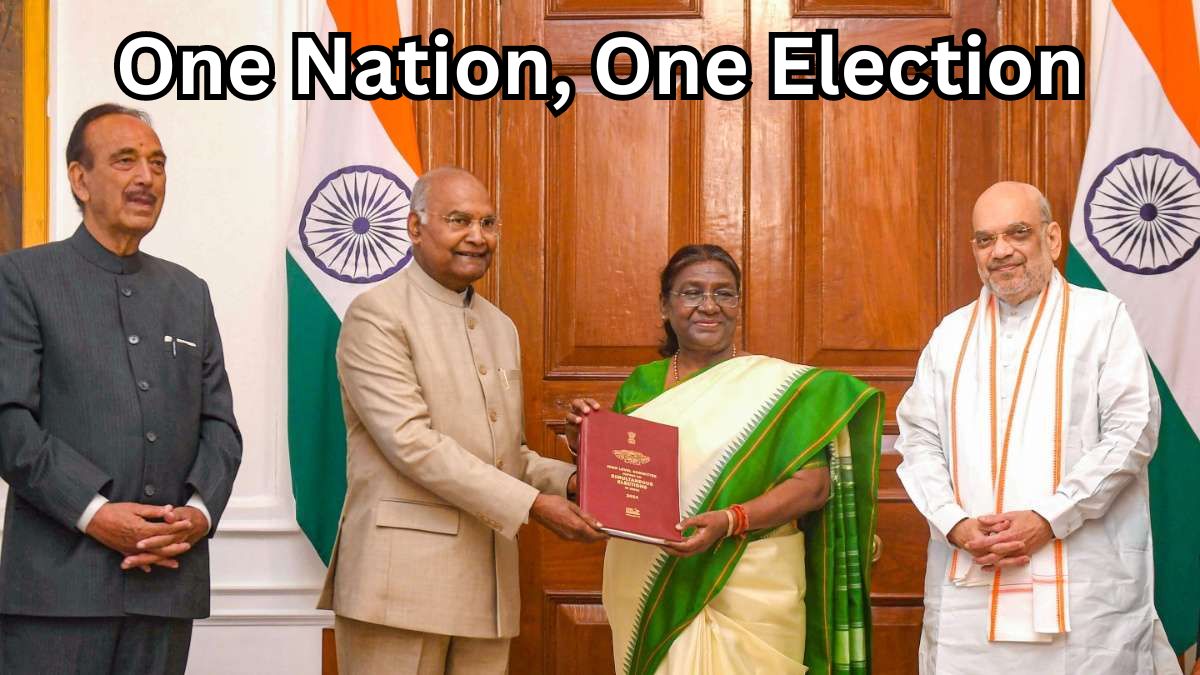
The Narendra Modi-led Cabinet has given its nod to the One Nation, One Election proposal, which seeks to align Lok Sabha and state assembly elections on a unified schedule. This decision follows the submission of a report by a high-level committee, led by former President Ram Nath Kovind, which was presented to the Union Cabinet. The bill for One Nation, One Election is expected to be introduced during the Winter Session of Parliament.
Recommendations of the Kovind Panel
The Kovind committee, which submitted its findings to President Droupadi Murmu in March, recommended holding simultaneous elections for the Lok Sabha and state assemblies. The panel also proposed the formation of an Implementation Group to oversee the execution of these recommendations.
The committee’s report emphasized that synchronized elections would not only save resources but also promote social cohesion and support India’s democratic structure. It proposed a common electoral roll and unified voter ID cards, to be prepared by the Election Commission of India (ECI) in collaboration with state election authorities.
Currently, the ECI manages Lok Sabha and assembly elections, while state election commissions handle municipal and panchayat polls. The panel suggested 18 constitutional amendments to facilitate One Nation, One Election, most of which would not require state ratification but would need approval from Parliament. However, amendments concerning a unified electoral roll and voter ID card system would need at least half of the states to ratify the changes.
Law Commission’s Upcoming Report
In a related development, the Law Commission is expected to release its own recommendations on holding simultaneous elections soon. According to sources, the commission may propose holding elections for all three levels of government — Lok Sabha, state assemblies, and local bodies like municipalities and panchayats — by 2029, with provisions for stable governance in cases of hung assemblies or no-confidence motions.
Opposition Reactions: Kharge and Owaisi Oppose the Move
Opposition leaders have been critical of the One Nation, One Election proposal. Congress president Mallikarjun Kharge termed it impractical, calling the move a political gimmick ahead of elections. He argued that the BJP brings forward such proposals to distract voters from pressing issues.
Responding to Kharge’s remarks, Union Minister Ashwini Vaishnaw pointed out that the proposal enjoys significant public support, with over 80% of respondents backing the idea, especially among the youth.
Asaduddin Owaisi, leader of the AIMIM, also strongly opposed the move, citing concerns about its impact on federalism and democracy. He argued that holding frequent elections helps maintain democratic accountability and that the Modi government’s push for simultaneous elections is driven by political motives.
As the government gears up to introduce the bill, the One Nation, One Election debate is expected to intensify, with proponents hailing it as an electoral reform and critics questioning its potential impact on India’s federal structure.
